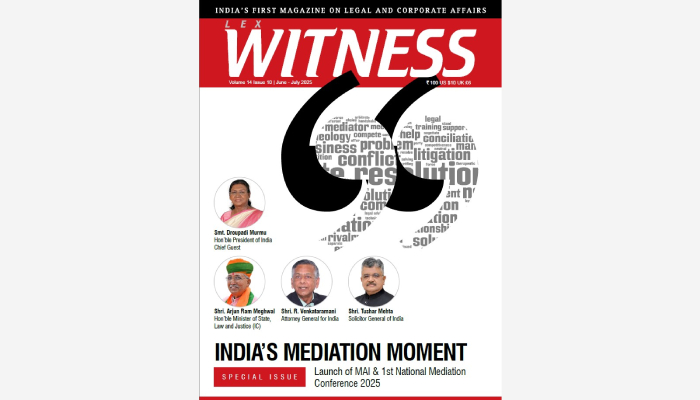
or

In In the span of less than two decades, India’s real-money online gaming industry grew from a niche, largely misunderstood sector to a multibillion-dollar powerhouse—and then faced an unprecedented regulatory reckoning. This sector, once touted as the frontier of digital entertainment and fintech innovation, is now navigating the most disruptive chapter in its history following the passage of the Promotion and Regulation of Online Gaming Act, 2025, which imposed a sweeping nationwide ban on all forms of real-money games, whether of skill or chance.
The journey to this point has been anything but straightforward. It reflects a complex interplay between entrepreneurship, technology, state and central regulation, constitutional principles, and social concerns. What began as small-scale rummy portals and fantasy sports apps has, over the years, drawn billions in venture capital, generated massive user bases, and sparked heated debates about the very definition of gambling versus skill-based entertainment in India.
The foundation for India’s gaming jurisprudence was laid decades before smartphones or mobile apps became part of everyday life.
In 1957, the Supreme Court, in a landmark ruling, drew a distinction between games of pure chance and those involving substantial skill. This doctrine, which treated skill-based games as legitimate business activities protected under Article 19(1)(g) of the Constitution, became the legal bedrock for operators of rummy, poker, and later, fantasy sports.
This principle was reinforced in subsequent judgments, including the 1967 ruling recognizing rummy as a game of skill and the 1996 verdict classifying horse racing betting as skill-based. These decisions would later become pivotal in battles fought by online platforms seeking to differentiate themselves from gambling outfits.
The mid-2010s witnessed a surge in smartphone adoption, cheap mobile data, and a vibrant start-up culture. These factors converged to fuel the explosive growth of India’s online gaming ecosystem.
States like Sikkim (2008) and Nagaland (2015) experimented with progressive laws to license and regulate online skill-based games, paving the way for companies to operate within a semiformalized framework.
Fantasy sports platforms such as Dream11, along with rummy and poker apps like MPL, Games24x7, WinZO, and PokerBaazi, rapidly scaled up. By 2024, India had nearly 490 million online gamers, with real-money gaming contributing nearly 86% of total industry revenues. The sector attracted over `25,000 crore in venture funding and became a significant source of tax revenue, particularly after the imposition of a uniform 28% GST on entry amounts starting October 2023.
For a brief period, India was poised to become one of the world’s largest regulated gaming markets. The gaming economy was not just about leisure—it created over 200,000 direct and indirect jobs, ranging from game design and tech development to marketing, customer service, and fintech integrations like UPI-based microtransactions.
Even as platforms scaled up, concerns around addiction, financial distress, and rising cases of fraud and suicide linked to online gaming began to dominate headlines. Several state governments responded by enacting sweeping bans. Telangana (2017) and Andhra Pradesh (2020) were among the first to outlaw online games played for stakes, regardless of skill.
However, these state-level prohibitions often clashed with constitutional protections for business and free trade. Courts stepped in repeatedly to strike down overbroad laws, as seen in the Madras High Court’s 2021 judgment invalidating Tamil Nadu’s blanket ban and the Karnataka High Court’s 2022 ruling against similar restrictions.
This created a patchwork of conflicting legal regimes: in some states, games like rummy and fantasy sports were perfectly legal, while in others, they were deemed criminal activities.
By 2023, the legal landscape had become a tug-of-war between state legislatures and high courts, with companies caught in the middle. Compliance became a nightmare, and even as central rules under the IT Act introduced self-regulatory frameworks, uncertainty persisted.
Recognizing the sector’s economic significance, the central government stepped in with two key moves in 2023:
This triggered legal challenges, with companies arguing that skill-based contests should not be taxed like gambling.
While these measures brought clarity on some fronts, they also squeezed margins and raised costs for both operators and players.
In August 2025, Parliament took the most dramatic step yet. The Promotion and Regulation of Online Gaming Act, 2025 was passed, creating a centralized regulatory body to oversee e-sports and casual games while completely banning all real-money games, regardless of whether they were skill-based or chance driven. Effective August 22, 2025, popular apps like Dream11, MPL, My11Circle, and WinZO suspended their real-money contests. This move overnight disrupted an industry worth billion:
For users, the ban meant sudden loss of access to platforms they had invested time and money into. For the government, it was a response to mounting social concerns. Critics, however, called it a blunt instrument that ignored judicial precedents and stifled innovation.
The immediate aftermath saw chaos:
Meanwhile, e-sports and non-monetary gaming categories have been carved out as growth areas under the new law, with the government aiming to promote them as part of India’s digital economy vision.
The story of India’s real-money online gaming industry is a cautionary tale about innovation, regulation, and societal values. From early court victories that celebrated the role of skill, to meteoric growth fuelled by technology and investment, and finally to a nationwide ban that redefines the sector’s future, this journey reflects the challenges of governing a digital-first economy.
As the Supreme Court deliberates, the fate of thousands of jobs, billions in revenue, and India’s reputation as a hub for tech-driven entertainment hangs in the balance. Whether the future holds a revival through nuanced regulation or a permanent shift toward non-monetary gaming, one thing is clear: the stakes have never been higher.
As we trace this fascinating journey, it becomes clear that the evolution of India’s real-money gaming industry has been marked by pivotal moments of growth, disruption, and legal reckoning. To truly understand the sector’s rise and its eventual collapse, it is essential to revisit the key milestones—from early court decisions that shaped the definition of skill versus chance, to the patchwork of state laws, and finally to the sweeping central ban of 2025.
The following timeline offers a chronological narrative, capturing every critical legal, regulatory, and judicial turning point that has defined the fate of online real money gaming in India.
A comprehensive chronology of every major legal, judicial, and regulatory development shaping the online real-money gaming industry – from early court doctrines to the nationwide ban and ongoing Supreme Court battle.
RMD Chamarbaugwalla case: Supreme Court holds that games where skill predominates are not gambling. Gambling is not protected as a business under Article 19(1)(g), giving states power to regulate or prohibit it.
State of Andhra Pradesh vs K. Satyanarayana: Rummy is “mainly and preponderantly a game of skill,” not gambling. This distinction becomes the foundation for later defenses of online skill games.
Dr. K.R. Lakshmanan vs State of Tamil Nadu: Horse racing requires skill and informed prediction, so wagering on races is not gambling.
Sikkim enacts India’s first online gaming licensing framework, initially allowing statewide play, later restricted to intranet parlours within state boundaries.
Nagaland introduces a licensing regime exclusively for online skill games like poker, rummy, chess, and fantasy sports, with pan-India applicability where local laws permit.
P&H High Court (Varun Gumber case): Dream11 fantasy contests deemed games of skill and legitimate business. SC later upholds this by dismissing appeals.
Telangana removes the skill exemption, banning all stake-based online games, including rummy and fantasy sports.
Andhra Pradesh passes similar blanket ban citing addiction concerns. Offenses are made cognizable and non-bailable. – 2023: HC sets up a committee to determine if rummy is a game of skill or chance (pending).
Prohibits all stake-based games, even chess tournaments with prizes.
Declares total ban unconstitutional and excessive. Affirms rummy and poker as skill games.
Rules rummy remains a game of skill even online; state cannot arbitrarily classify it as gambling.
Outlaws all online stake-based games, but exempts horse racing.
Finds the law disproportionate and discriminatory. Quote: “Game of skill played with or without stakes is not gambling.”
Bans online games of chance, controversially listing rummy and poker as chance games. Creates Tamil Nadu Online Gaming Authority.
Two major questions now pending before SC:
The nationwide ban on real-money online gaming has caused a massive economic shock, hitting companies, investors, jobs, and government revenues. Here are the key India focused statistics that highlight the scale of disruption:
Real-money online gaming has seen a remarkable evolution across jurisdictions, with countries taking different approaches depending on legal traditions, cultural sensitivities, and economic priorities. While some regions have embraced comprehensive licensing regimes, others have chosen prohibition or partial permissions. Many have transitioned over time from unregulated grey markets to highly structured frameworks.
These countries treat online gaming as a regulated activity, with licensing, taxation, and strict oversight.
The Gambling Act 2005 established a unified framework for remote gambling. The UK Gambling Commission (UKGC) oversees licensing, advertising standards, responsible gaming measures, and anti money laundering (AML) compliance. Recent updates include enhanced affordability checks and real-time data reporting.
The Remote Gambling Act (KOA), effective in 2021, introduced strict licensing rules and Cruks, a central self-exclusion registry. Operators are held to high duty-of-care standards, and enforcement against unlicensed operators has been a key focus.
The Interstate Treaty on Gambling (GlüStV 2021) unified previously fragmented laws, legalising online slots, poker, and sports betting with uniform federalstate oversight. Regulations include deposit caps, stake limits, and advertising restrictions.
Spain has gradually tightened its laws with advertising bans and a “safer gambling” framework aimed at protecting young adults. Licensed operators face continuous monitoring and reporting obligations.
A 2024 reform reorganised licensing structures, responsible gaming mandates, and AML compliance, bringing Italy in line with contemporary European standards.
Partial Permission with Strict Carve-Outs
Certain jurisdictions permit specific products, while others remain prohibited or state-controlled.
The Interactive Gambling Act bans online casino and poker but allows state-regulated online sports betting. The Australian Communications and Media Authority (ACMA) plays a key role in blocking unlicensed operators and advertisements.
The Gambling Control Act 2022 introduced a consolidated licensing system with narrow authorisations. Unlicensed gambling, including remote operations, faces strict criminal penalties.
Remote gambling is prohibited unless offered by state entities such as Lotto NZ. This approach prioritises public health by limiting access to online platforms.
Some countries maintain comprehensive bans on real-money online gaming.
All private online gambling is prohibited, with only state lotteries operating legally. Enforcement includes censorship, payment blocks, and criminal penalties.
Historically operated under a complete ban, but in 2023, a federal gambling authority was created to explore tightly controlled licensing, marking a cautious step toward regulation.
Many countries have moved from loosely regulated environments to formalised frameworks.
Fixed-odds betting was legalised in 2018, followed by a comprehensive federal regime under Law 14,790/2023. Current efforts focus on licensing, taxation, AML requirements, and blocking unlicensed operators.
Domestic e-gaming licences continue to expand, while offshore-facing POGOs are being phased out to address corruption and security concerns.
Evolving reforms now mandate AML compliance, disclosure of beneficial ownership, and stricter licensing procedures for operators.
The 2018 repeal of PASPA enabled states to regulate independently:
Across jurisdictions, certain tools are consistently employed:
The LW Bureau is a seasoned mix of legal correspondents, authors and analysts who bring together a very well researched set of articles for your mighty readership. These articles are not necessarily the views of the Bureau itself but prove to be thought provoking and lead to discussions amongst all of us. Have an interesting read through.

Lex Witness Bureau

Lex Witness Bureau

Lex Witness Bureau

For over 10 years, since its inception in 2009 as a monthly, Lex Witness has become India’s most credible platform for the legal luminaries to opine, comment and share their views. more...
Connect Us:


The Grand Masters - A Corporate Counsel Legal Best Practices Summit Series
www.grandmasters.in | 8 Years & Counting
The Real Estate & Construction Legal Summit
www.rcls.in | 8 Years & Counting
The Information Technology Legal Summit
www.itlegalsummit.com | 8 Years & Counting
The Banking & Finance Legal Summit
www.bfls.in | 8 Years & Counting
The Media, Advertising and Entertainment Legal Summit
www.maels.in | 8 Years & Counting
The Pharma Legal & Compliance Summit
www.plcs.co.in | 8 Years & Counting
We at Lex Witness strategically assist firms in reaching out to the relevant audience sets through various knowledge sharing initiatives. Here are some more info decks for you to know us better.
Copyright © 2020 Lex Witness - India's 1st Magazine on Legal & Corporate Affairs Rights of Admission Reserved